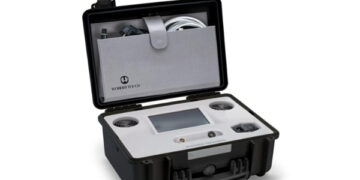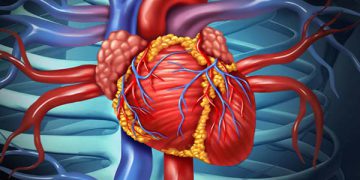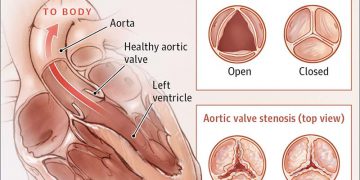Understanding the Basics: What Are Plasma Centers?
A Deep Dive into Plasma Donation
Plasma centers are specialized medical facilities where individuals can donate plasma, the liquid component of blood that is essential for a multitude of medical applications. Unlike whole blood donation, where red cells, white cells, platelets, and plasma are collected together, plasma donation involves separating the plasma from the other blood components. This process, known as plasmapheresis, utilizes a centrifuge to separate the blood components. Donors typically find the experience relatively straightforward, although some may experience mild discomfort at the donation site. Each donation session generally lasts about 1-2 hours, and during this time, donors can relax, browse the internet, or read, as they are comfortably reclined during the procedure.
One of the primary reasons individuals choose to donate plasma is the rising need for life-saving treatments that rely on plasma-derived products. Plasma is used to manufacture immunoglobulins, clotting factor concentrates, and albumin, all of which play pivotal roles in treating various medical conditions such as hemophilia, immune deficiencies, and burns.
The Science Behind Plasma: Why Is It So Valuable?
Plasma is a vital fluid that constitutes about 55% of human blood and is 90% water, containing crucial proteins, hormones, and nutrients. This unique composition makes plasma invaluable in modern medicine. Plasma contains immunoglobulins—antibodies that help fight infections—as well as clotting factors essential for wound healing. The proteins found in plasma are harvested and purified for use in several therapies and treatments, directly impacting the health and well-being of patients around the world.
The ability of plasma to carry and deliver nutrients, hormones, and waste products makes it indispensable for maintaining homeostasis within the body. When a person donates plasma, it not only aids in replenishing the supply of these critical proteins but also supports the growing demand for therapeutic plasma-derived products. As medical science advances, the need for high-quality plasma donations continues to grow, further elevating the importance of plasma centers.
Why New Jersey? The Unique Landscape of Plasma Donation
The Growing Demand for Plasma: What’s Driving Change?
New Jersey has emerged as a significant player in the landscape of plasma donation, largely due to its population density and proximity to some of the world’s leading medical research institutions and hospitals. The demand for plasma has increased significantly over the years, driven by an uptick in autoimmune disorders, hemophilia, and other chronic health conditions that require the administration of plasma-derived therapies. Additionally, advancements in research regarding the therapeutic benefits of plasma have led to an increase in its applications, further amplifying the need for consistent plasma supply.
A report by the Plasma Protein Therapeutics Association emphasized that the biopharmaceutical industry’s ongoing expansion contributes to the rising demand for plasma, with an anticipated growth rate that suggests a continual shortage in the future. Therefore, plasma donation is not just a community service; it is vital to the healthcare system. New Jersey’s vibrant communities reflect a compassionate approach to philanthropy, making the residents natural candidates for this indispensable act of giving.
Navigating the Regulatory Framework: What You Need to Know
The regulatory environment governing plasma donation in New Jersey is intricate and essential to ensuring a safe process for donors. Plasma centers must adhere to stringent federal regulations overseen by the Food and Drug Administration (FDA) and, at times, local health departments. These regulations ensure that all collection, processing, and storage procedures meet the highest safety standards, protecting both the donor and the recipient.
Additionally, each plasma center is responsible for conducting thorough health screenings and testing to ascertain donor eligibility. Prospective donors typically undergo a series of evaluations, including a health questionnaire and a physical examination, to assess their medical history and current health status. This systematic approach guarantees that only suitable individuals donate plasma, thereby minimizing the risk of complications and maintaining the integrity of the plasma collected.
Finding the Right Center: Tips and Recommendations
Spotting Quality: What Makes a Plasma Center Stand Out?
Choosing the right plasma center is crucial for ensuring a positive donation experience. When evaluating plasma centers in New Jersey, it’s important to look for specific qualities that reflect a commitment to donor welfare and safety. High-quality centers typically adhere to strict standards, with certification and compliance with FDA guidelines being top priorities. Prospective donors should also ask about the center’s accreditation and whether it undergoes regular inspections to maintain its standing.
Another key factor is the level of staff professionalism. Centers with well-trained staff who prioritize donor education and care create an environment where individuals feel valued and secure. Engaging and informative staff can significantly enhance the donation experience, providing reassurance to those who may be anxious or uncertain. Furthermore, centers that maintain a clean, comfortable environment with modern technology make the donation process more pleasant.
Lastly, reputation plays a pivotal role. A center with positive reviews and testimonials from previous donors reflects a commitment to service excellence. Exploring online review platforms and engaging with other donors on community forums can provide insights into the center’s operations and the overall donor experience.
Insider Tips: Making Your Plasma Donation Experience Exceptional
Preparing for a plasma donation can significantly influence the experience itself, making it smoother and more enjoyable. First, staying hydrated in the days leading up to your appointment is essential. Increased fluid intake helps to expand blood volume, making the donation process more efficient and easier on the donor’s body.
Adequate nutrition plays an equally critical role. Donors are encouraged to eat a healthy meal, rich in protein and iron, prior to their appointment. This not only boosts energy levels but also helps replenish lost nutrients after the donation. It is also advisable to avoid alcohol and high-fat foods in the hours leading up to the donation, as these can impair the quality of the plasma.
Another valuable tip is to bring something to do during the donation session. Many centers provide entertainment options, but having a personal device with headphones or a good book can help pass the time and make the experience enjoyable. Lastly, don’t hesitate to ask questions or voice concerns; knowledgeable staff are there to assist and ensure you feel comfortable throughout the process.
The Impact of Plasma Donation: Beyond the Personal Benefits
The Human Stories: Lives Changed Through Plasma Donation
The true impact of plasma donation transcends the act itself, weaving deeply into the fabric of countless human stories. For many patients suffering from chronic illnesses, such as hemophilia or severe immune deficiencies, access to plasma-derived therapies can mean the difference between life and death. Personal testimonies from recipients often highlight how a donor’s altruism directly changed their circumstances; individuals who once faced insurmountable challenges can find hope and healing through the therapies made possible by plasma donation.
Across the state of New Jersey, personal narratives abound regarding the transformative power of plasma products. Many individuals recount how the timely supply of clotting factors allowed them to lead healthier, more active lives, significantly reducing hospitalizations and improving their quality of life. Stories of gratitude frequently highlight the invaluable bond between donors and recipients, creating a sense of community and mutual support that lifts the spirits of those involved in plasma donation.
Plasma Donation and Public Health: A Greater Good
Beyond individual stories, the contributions made through plasma donation also resonate on a larger scale, enhancing public health initiatives and improving overall population health. Plasma-derived therapies play a critical role in managing various health conditions and manufacturing vaccines, thereby contributing to the health infrastructure of the state and the nation as a whole.
The ever-increasing demand for plasma is correlated with the growth of medical advances in treating not just chronic illnesses, but also emerging health threats, including infectious diseases. The ongoing need for research and development in this field emphasizes the importance of maintaining a robust plasma donation system. In this way, plasma donors play an integral role in safeguarding public health, helping to ensure that life-saving therapies remain available for future generations.
In conclusion, engaging with plasma donation provides numerous rewards—personal, communal, and societal. As New Jersey continues to evolve as a hub for medical innovation and plasma collection, residents have both the opportunity and the responsibility to participate in this noble act. By choosing to donate plasma, individuals not only contribute to their own well-being but profoundly affect the lives of others in their community and beyond.
Follow – https://healthhuff.com for More Updates






































